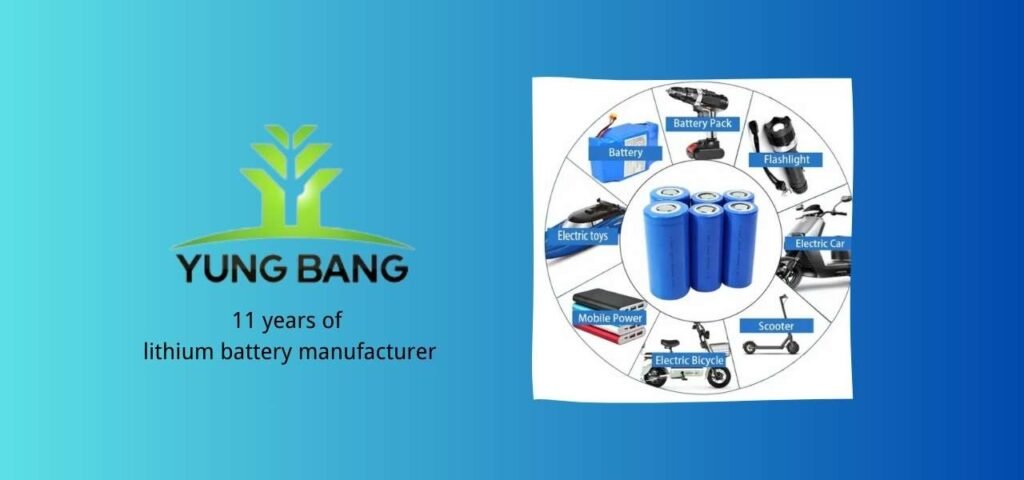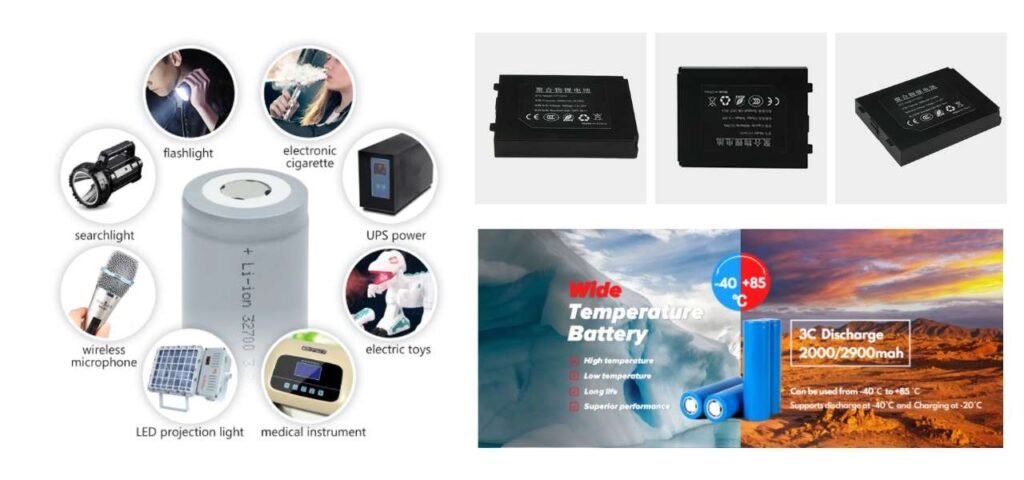遥控锂聚合物电池(LiPo) 是现代遥控设备的命脉,为无人机、遥控车、飞机、船只和直升机等一切设备提供动力。其轻巧的设计、高能量密度和快速爆发能量的能力使其成为遥控爱好者和专业人士的首选电源。然而,了解锂聚合物电池的细微差别,包括其规格、使用方法和安全性,对于充分发挥遥控模型的作用至关重要。
在本文中,我们将介绍您需要了解的有关遥控锂电池的所有信息,包括它们的特点、优势、维护技巧和安全指南。

什么是遥控锂聚合物电池?
遥控锂聚合物电池是一种可充电电池,专为要求高功率输出、轻便小巧的应用而设计。与曾是遥控设备标准配置的传统镍镉(NiCd)或镍氢(NiMH)电池不同,锂聚合物电池具有更高的能量密度,是高性能遥控模型的理想选择。
遥控锂聚合物电池的主要特点
- 高功率输出:锂聚合物电池可快速放电,因此非常适合需要爆发速度或持续高性能的遥控车辆。
- 重量轻,结构紧凑:锂聚合物电池比其他类型的电池轻得多,这对于遥控飞机和无人机来说至关重要,因为重量会影响飞行性能。
- 灵活的形状和尺寸:锂聚合物电池可以制造成各种形状和尺寸,使其适用于紧凑型遥控设备。
- 多种电池配置:锂聚合物电池可串联 (S) 以增加电压,或并联 (P) 以增加容量,从而为不同的遥控应用提供灵活性。
了解遥控锂电池规格
在选择遥控锂电池时,您会遇到几个关键的规格。了解这些术语对于为您的遥控模型选择合适的电池至关重要。
细胞计数(S)
电池单元数通常写为 "2S"、"3S "或 "4S",指的是电池内串联的电池单元数。每个锂聚合物电池的标称电压为 3.7V。例如
- 2S 电池 = 2 节串联电池 = 7.4V
- 3S 电池 = 3 节串联电池 = 11.1V
- 4S 电池 = 4 节串联电池 = 14.8V
电池数量越多,电压越高,功率和速度也就越大。
容量(毫安时)
锂聚合物电池的容量以毫安时(mAh)为单位,表示电池可存储的能量。例如,2200mAh 电池理论上可以在一小时内提供 2200 毫安(2.2 安培)的电流。容量越大的电池运行时间越长,但通常也更重、更笨重。
放电率(C 级)
C 级表示锂聚合物电池在不过热或不损坏自身的情况下放电的速度。它是以电池容量的倍数来计算的。例如
- 额定值为 20C 的 2200mAh 电池放电电流可达 44 安培(2200 x 20 / 1000)。
对于需要大功率的遥控车辆(如赛车或特技无人机)来说,较高的 C 级是必不可少的。
电压
电压会影响遥控模型的速度和功率。大多数遥控设备都有特定的电压要求。在选择电池之前,请务必检查您模型的电压兼容性。
连接器类型
遥控模型用锂电池有多种连接器类型,如 XT60、Deans T-Plug、EC3 或 JST。请确保连接器与您的遥控设备或电子调速器(ESC)上的连接器相匹配。
遥控锂聚合物电池的优势
遥控锂电池广受欢迎是有原因的。以下是它们在遥控应用中优于其他类型电池的原因:
- 设计轻巧紧凑:锂聚合物电池比镍氢电池和镍镉电池轻得多,因此遥控车辆可以获得更好的速度、灵活性和飞行时间。
- 高能量密度:锂聚合物电池单位重量可存储更多能量,在不增加体积的情况下提供更长的运行时间或更高的性能。
- 高出院率:锂聚合物电池能够快速放电,因此非常适合需要快速爆发电能的高性能遥控车辆。
- 可定制性:锂聚合物电池有各种形状、尺寸和配置,因此适用于任何遥控模型,从小型无人机到大型遥控飞机。
- 用途广泛:无论您是驾驶四旋翼飞行器、遥控赛车,还是驾驶直升机,锂聚合物电池都能满足您设备的特定电压和容量要求。
如何选择合适的遥控锂电池
为您的遥控模型选择合适的电池取决于几个因素,包括模型类型、功率要求和您的性能目标。以下是一些帮助您选择的提示:
- 为遥控模型匹配电压:确保电池电压符合遥控车的电压要求。使用电压过高或过低的电池都可能损坏电机或电调。
- 平衡能力和重量:虽然高容量电池的运行时间更长,但它们也更重。对于遥控飞机和无人机,应优先使用较轻的电池,以保持飞行性能。
- 检查 C 级:对于高性能遥控模型,应选择 C 值较高的电池,以确保它能提供所需的功率而不会过热。
- 确认连接器的兼容性:确保电池连接器与遥控设备上的连接器匹配。如果不匹配,您可能需要使用适配器或焊接一个新的连接器。
- 考虑品牌和质量:投资信誉良好的制造商生产的高品质电池,如广东永邦新能源有限公司,该公司提供可靠、安全和可定制的遥控锂聚合物电池。
遥控锂电池安全提示
虽然遥控锂电池功能强大,但也需要小心操作,以避免发生火灾或肿胀等事故。请遵循以下安全提示,以确保电池的使用寿命和安全使用:
- 使用合适的充电器:请务必使用专为锂聚合物电池设计的充电器。切勿使用镍氢或镍镉充电器,否则会导致电池过热并造成损坏。
- 正确存放电池:将锂电池存放在防火锂电池袋或金属容器中,并置于阴凉干燥处。避免存放在高温或潮湿的环境中。
- 避免过度充电或过度放电:锂聚合物电池过度充电会导致膨胀,而过度放电则会永久性损坏电池。使用电池管理系统(BMS)或带低电压切断功能的电调来防止过度放电。
- 检查损坏情况:定期检查电池是否有损坏迹象,如肿胀、穿孔或电线磨损。如果电池出现损坏,请勿使用。
- 切勿让充电电池处于无人看管状态:锂聚合物电池充电时切勿无人看管,因为过热可能导致危险情况。

广东永邦新能源有限公司的可定制遥控锂电池
广东永邦新能源股份有限公司 是一家值得信赖的遥控锂聚合物电池制造商,为各类遥控设备提供可靠、高性能的解决方案。作为源头工厂,我们专注于:
- 可定制的电池:我们可以定制电池的尺寸、形状、电压和容量,以满足您对遥控汽车、无人机或飞机的特定需求。
- 高 C 级电池:我们的锂聚合物电池专为高放电率而设计,可确保在要求苛刻的应用中实现最佳性能。
- 卓越的安全标准:我们的所有电池都经过严格测试,确保符合国际安全和质量标准。
无论您是业余爱好者还是专业人士,广东永邦新能源有限公司都能为您的遥控需求提供完美的电池解决方案。
结论
遥控锂聚合物电池彻底改变了遥控车和遥控设备的世界,它具有无与伦比的性能、轻质设计和多功能性。通过了解它们的规格、为您的模型选择合适的电池以及遵循正确的安全规范,您可以最大限度地提高遥控锂聚合物电池的性能和使用寿命。
要想获得高品质、可定制的锂聚合物电池,广东永邦新能源有限公司是您的最佳选择。我们致力于创新、安全和客户满意度,是您在遥控探险中值得信赖的合作伙伴。
常见问题
遥控锂电池的使用寿命有多长?
遥控锂聚合物电池的使用寿命通常在 300 到 500 次充电周期之间,具体取决于电池的维护和使用情况。
我可以在遥控车中使用电压更高的锂聚合物电池吗?
使用高于遥控车额定电压的电池可能会损坏电机和电调。请务必检查设备的电压要求。
如何存放遥控锂电池?
室温下将锂聚合物电池存放在防火锂聚合物袋或金属容器中。长期存放前,请将其充电至存储电压(每节电池 3.8V)。
如果遥控锂电池膨胀会发生什么情况?
肿胀是损坏或过度充电的迹象。请立即停止使用电池,并根据当地法规进行安全处理。
广东永邦新能源股份有限公司可以为我的遥控模型定制电池吗?
是的!我们专门提供可定制的遥控锂聚合物电池,以满足您的特定电压、容量和设计要求。联系我们,讨论您的需求。
